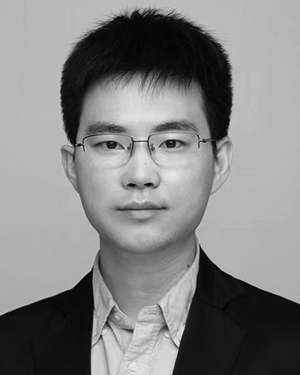Abstract:
Motion prediction is the fundamental input for decision-making in autonomous vehicles. The current motion prediction solutions are designed with a strong reliance on blac...Show MoreMetadata
Abstract:
Motion prediction is the fundamental input for decision-making in autonomous vehicles. The current motion prediction solutions are designed with a strong reliance on black box predictions based on neural networks (NNs), which is unacceptable for safety-critical applications. Motion prediction with high uncertainty can cause conflicting decisions and even catastrophic results. To address this issue, an uncertainty estimation approach based on the deep ensemble technique is proposed for motion prediction in this paper. Subsequently, the estimated uncertainty is considered in the decision-making module to improve driving safety. Firstly, a motion prediction model based on long short-term memory (LSTM) is built and the deep ensemble technique is utilized to obtain both epistemic and aleatoric uncertainty of the prediction model. Besides, an uncertainty-aware potential field is developed to process the prediction uncertainty. Furthermore, a decision-making framework is proposed based on the model predictive control algorithm that considers the uncertainty-aware potential field, road boundaries, and multiple constraints of vehicle dynamics. Finally, the public available NGSIM, HighD and INTERACTION datasets are used to evaluate the proposed motion prediction model. More importantly, two traffic scenarios are also extracted from NGSIM and INTERACTION datasets to verify the effectiveness of the proposed decision-making method and in particular, its real-time performance is shown by employing a hardware-in-the-loop (HiL) experiment bench.
Published in: IEEE Transactions on Intelligent Vehicles ( Volume: 7, Issue: 4, December 2022)
Funding Agency:

College of Mechanical and Vehicle Engineering, Chongqing University, Chongqing, China
Xiaolin Tang (Member, IEEE) received the B.S. degree in mechanics engineering and the M.S. degree in vehicle engineering from Chongqing University, Chongqing, China, in 2006 and 2009, respectively, and the Ph.D. degree in mechanical engineering from Shanghai JiaoTong University, Shanghai, China, in 2015. He is currently an Associate Professor with the State Key Laboratory of Mechanical Transmissions and College of Mechani...Show More
Xiaolin Tang (Member, IEEE) received the B.S. degree in mechanics engineering and the M.S. degree in vehicle engineering from Chongqing University, Chongqing, China, in 2006 and 2009, respectively, and the Ph.D. degree in mechanical engineering from Shanghai JiaoTong University, Shanghai, China, in 2015. He is currently an Associate Professor with the State Key Laboratory of Mechanical Transmissions and College of Mechani...View more

College of Mechanical and Vehicle Engineering, Chongqing University, Chongqing, China
Kai Yang received the B.E. degree in vehicle engineering from the Wuhan University of Technology, Wuhan, China, in 2018. He is currently working toward the Ph.D. degree with the College of Mechanical and Vehicle Engineering, Chongqing University, Chongqing, China. He researches as a Joint Ph.D. Student with the School of Vehicle and Mobility, Tsinghua University, Beijing, China. His research interests include motion predi...Show More
Kai Yang received the B.E. degree in vehicle engineering from the Wuhan University of Technology, Wuhan, China, in 2018. He is currently working toward the Ph.D. degree with the College of Mechanical and Vehicle Engineering, Chongqing University, Chongqing, China. He researches as a Joint Ph.D. Student with the School of Vehicle and Mobility, Tsinghua University, Beijing, China. His research interests include motion predi...View more

School of Vehicle and Mobility, Tsinghua University, Beijing, China
Hong Wang (Senior Member, IEEE) received the Ph.D. degree from the Beijing Institute of Technology, Beijing, China, in 2015. She is currently a Research Associate Professor with Tsinghua University, Beijing, China. From 2015 to 2019, she was a Research Associate of mechanical and mechatronics engineering with the University of Waterloo, Waterloo, ON, Canada. Her research interests include the safety of the on-board AI alg...Show More
Hong Wang (Senior Member, IEEE) received the Ph.D. degree from the Beijing Institute of Technology, Beijing, China, in 2015. She is currently a Research Associate Professor with Tsinghua University, Beijing, China. From 2015 to 2019, she was a Research Associate of mechanical and mechatronics engineering with the University of Waterloo, Waterloo, ON, Canada. Her research interests include the safety of the on-board AI alg...View more

Faculty of Natural, Mathematical & Engineering Sciences, King’s College, London, U.K.
Jiahang Wu received the B.S. degree in computer science from the Capital University of Economics and Business, Beijing, China, in 2020. He is currently working toward the master’s degree in artificial intelligence with King’s College London, London, U.K. He researches as a Joint M.S. Student with the School of Vehicle and Mobility, Tsinghua University, Beijing, China. His research interests include computer vision, motion...Show More
Jiahang Wu received the B.S. degree in computer science from the Capital University of Economics and Business, Beijing, China, in 2020. He is currently working toward the master’s degree in artificial intelligence with King’s College London, London, U.K. He researches as a Joint M.S. Student with the School of Vehicle and Mobility, Tsinghua University, Beijing, China. His research interests include computer vision, motion...View more

School of Mechanical Engineering, Beijing Institute of Technology, Beijing, China
Yechen Qin (Member, IEEE) received the B.Sc. and Ph.D. degrees from the School of Mechanical Engineering, Beijing Institute of Technology, Beijing, China, in 2010 and 2016, respectively. He is currently an Associate Professor with the Beijing Institute of Technology. From 2013 to 2014, he was a Visiting Ph.D. Student with Texas A&M University, College Station, TX, USA. He was also a Postdoctoral Research Fellow and a Visi...Show More
Yechen Qin (Member, IEEE) received the B.Sc. and Ph.D. degrees from the School of Mechanical Engineering, Beijing Institute of Technology, Beijing, China, in 2010 and 2016, respectively. He is currently an Associate Professor with the Beijing Institute of Technology. From 2013 to 2014, he was a Visiting Ph.D. Student with Texas A&M University, College Station, TX, USA. He was also a Postdoctoral Research Fellow and a Visi...View more

School of Vehicle and Mobility, Tsinghua University, Beijing, China
Wenhao Yu received the Ph.D. degree from Jiangsu University, Zhenjiang, China, in 2020. He is currently a Research Associate with the School of Vehicle and Mobility, Tsinghua University, Beijing, China. His research interests include decision-making, path planning and following control of autonomous vehicles, model predictive control, and safety of the intended functionality of autonomous vehicles.
Wenhao Yu received the Ph.D. degree from Jiangsu University, Zhenjiang, China, in 2020. He is currently a Research Associate with the School of Vehicle and Mobility, Tsinghua University, Beijing, China. His research interests include decision-making, path planning and following control of autonomous vehicles, model predictive control, and safety of the intended functionality of autonomous vehicles.View more

Department of Mechanical and Mechatronics Engineering, University of Waterloo, Waterloo, ON, Canada
Dongpu Cao received the Ph.D. degree from Concordia University, Montreal, QC, Canada, in 2008. He is currently an Associate Professor with the University of Waterloo, Waterloo, ON, USA. He has contributed more than 150 publications, one book, and one U.S. patent in his research areas, which include vehicle dynamics, control and intelligence. He was the recipient of the ASME AVTT’2010 Best Paper Award and 2012 SAE Arch T. ...Show More
Dongpu Cao received the Ph.D. degree from Concordia University, Montreal, QC, Canada, in 2008. He is currently an Associate Professor with the University of Waterloo, Waterloo, ON, USA. He has contributed more than 150 publications, one book, and one U.S. patent in his research areas, which include vehicle dynamics, control and intelligence. He was the recipient of the ASME AVTT’2010 Best Paper Award and 2012 SAE Arch T. ...View more

College of Mechanical and Vehicle Engineering, Chongqing University, Chongqing, China
Xiaolin Tang (Member, IEEE) received the B.S. degree in mechanics engineering and the M.S. degree in vehicle engineering from Chongqing University, Chongqing, China, in 2006 and 2009, respectively, and the Ph.D. degree in mechanical engineering from Shanghai JiaoTong University, Shanghai, China, in 2015. He is currently an Associate Professor with the State Key Laboratory of Mechanical Transmissions and College of Mechanical and Vehicle Engineering, Chongqing University. He has led and has been involved in more than ten research projects, and has authored or coauthored more than 40 papers. His research interests include hybrid electric vehicles, vehicle dynamics, energy management, and autonomous vehicle.
Xiaolin Tang (Member, IEEE) received the B.S. degree in mechanics engineering and the M.S. degree in vehicle engineering from Chongqing University, Chongqing, China, in 2006 and 2009, respectively, and the Ph.D. degree in mechanical engineering from Shanghai JiaoTong University, Shanghai, China, in 2015. He is currently an Associate Professor with the State Key Laboratory of Mechanical Transmissions and College of Mechanical and Vehicle Engineering, Chongqing University. He has led and has been involved in more than ten research projects, and has authored or coauthored more than 40 papers. His research interests include hybrid electric vehicles, vehicle dynamics, energy management, and autonomous vehicle.View more

College of Mechanical and Vehicle Engineering, Chongqing University, Chongqing, China
Kai Yang received the B.E. degree in vehicle engineering from the Wuhan University of Technology, Wuhan, China, in 2018. He is currently working toward the Ph.D. degree with the College of Mechanical and Vehicle Engineering, Chongqing University, Chongqing, China. He researches as a Joint Ph.D. Student with the School of Vehicle and Mobility, Tsinghua University, Beijing, China. His research interests include motion prediction and decision-making of autonomous vehicles.
Kai Yang received the B.E. degree in vehicle engineering from the Wuhan University of Technology, Wuhan, China, in 2018. He is currently working toward the Ph.D. degree with the College of Mechanical and Vehicle Engineering, Chongqing University, Chongqing, China. He researches as a Joint Ph.D. Student with the School of Vehicle and Mobility, Tsinghua University, Beijing, China. His research interests include motion prediction and decision-making of autonomous vehicles.View more

School of Vehicle and Mobility, Tsinghua University, Beijing, China
Hong Wang (Senior Member, IEEE) received the Ph.D. degree from the Beijing Institute of Technology, Beijing, China, in 2015. She is currently a Research Associate Professor with Tsinghua University, Beijing, China. From 2015 to 2019, she was a Research Associate of mechanical and mechatronics engineering with the University of Waterloo, Waterloo, ON, Canada. Her research interests include the safety of the on-board AI algorithm, safe decision-making for intelligent vehicles, and test and evaluation of SOTIF. She has authored or coauthored more than 60 papers in top international journals. She was also an Associate Editor for IEEE Transactions on Vehicular Technology and IEEE transactions on Intelligent Vehicles.
Hong Wang (Senior Member, IEEE) received the Ph.D. degree from the Beijing Institute of Technology, Beijing, China, in 2015. She is currently a Research Associate Professor with Tsinghua University, Beijing, China. From 2015 to 2019, she was a Research Associate of mechanical and mechatronics engineering with the University of Waterloo, Waterloo, ON, Canada. Her research interests include the safety of the on-board AI algorithm, safe decision-making for intelligent vehicles, and test and evaluation of SOTIF. She has authored or coauthored more than 60 papers in top international journals. She was also an Associate Editor for IEEE Transactions on Vehicular Technology and IEEE transactions on Intelligent Vehicles.View more

Faculty of Natural, Mathematical & Engineering Sciences, King’s College, London, U.K.
Jiahang Wu received the B.S. degree in computer science from the Capital University of Economics and Business, Beijing, China, in 2020. He is currently working toward the master’s degree in artificial intelligence with King’s College London, London, U.K. He researches as a Joint M.S. Student with the School of Vehicle and Mobility, Tsinghua University, Beijing, China. His research interests include computer vision, motion prediction of vehicles, pedestrians, and uncertainty estimation.
Jiahang Wu received the B.S. degree in computer science from the Capital University of Economics and Business, Beijing, China, in 2020. He is currently working toward the master’s degree in artificial intelligence with King’s College London, London, U.K. He researches as a Joint M.S. Student with the School of Vehicle and Mobility, Tsinghua University, Beijing, China. His research interests include computer vision, motion prediction of vehicles, pedestrians, and uncertainty estimation.View more

School of Mechanical Engineering, Beijing Institute of Technology, Beijing, China
Yechen Qin (Member, IEEE) received the B.Sc. and Ph.D. degrees from the School of Mechanical Engineering, Beijing Institute of Technology, Beijing, China, in 2010 and 2016, respectively. He is currently an Associate Professor with the Beijing Institute of Technology. From 2013 to 2014, he was a Visiting Ph.D. Student with Texas A&M University, College Station, TX, USA. He was also a Postdoctoral Research Fellow and a Visiting Scholar with the Beijing Institute of Technology and University of Waterloo, Waterloo, ON, Canada. His research focuses on autonomous vehicle control.
Yechen Qin (Member, IEEE) received the B.Sc. and Ph.D. degrees from the School of Mechanical Engineering, Beijing Institute of Technology, Beijing, China, in 2010 and 2016, respectively. He is currently an Associate Professor with the Beijing Institute of Technology. From 2013 to 2014, he was a Visiting Ph.D. Student with Texas A&M University, College Station, TX, USA. He was also a Postdoctoral Research Fellow and a Visiting Scholar with the Beijing Institute of Technology and University of Waterloo, Waterloo, ON, Canada. His research focuses on autonomous vehicle control.View more

School of Vehicle and Mobility, Tsinghua University, Beijing, China
Wenhao Yu received the Ph.D. degree from Jiangsu University, Zhenjiang, China, in 2020. He is currently a Research Associate with the School of Vehicle and Mobility, Tsinghua University, Beijing, China. His research interests include decision-making, path planning and following control of autonomous vehicles, model predictive control, and safety of the intended functionality of autonomous vehicles.
Wenhao Yu received the Ph.D. degree from Jiangsu University, Zhenjiang, China, in 2020. He is currently a Research Associate with the School of Vehicle and Mobility, Tsinghua University, Beijing, China. His research interests include decision-making, path planning and following control of autonomous vehicles, model predictive control, and safety of the intended functionality of autonomous vehicles.View more

Department of Mechanical and Mechatronics Engineering, University of Waterloo, Waterloo, ON, Canada
Dongpu Cao received the Ph.D. degree from Concordia University, Montreal, QC, Canada, in 2008. He is currently an Associate Professor with the University of Waterloo, Waterloo, ON, USA. He has contributed more than 150 publications, one book, and one U.S. patent in his research areas, which include vehicle dynamics, control and intelligence. He was the recipient of the ASME AVTT’2010 Best Paper Award and 2012 SAE Arch T. Colwell Merit Award. Dr. Cao is an Associate Editor for IEEE Transactions on Intelligent Transportation Systems. He also serves on the SAE International Vehicle Dynamics Standards Committee and a few ASME, SAE, and IEEE technical committees.
Dongpu Cao received the Ph.D. degree from Concordia University, Montreal, QC, Canada, in 2008. He is currently an Associate Professor with the University of Waterloo, Waterloo, ON, USA. He has contributed more than 150 publications, one book, and one U.S. patent in his research areas, which include vehicle dynamics, control and intelligence. He was the recipient of the ASME AVTT’2010 Best Paper Award and 2012 SAE Arch T. Colwell Merit Award. Dr. Cao is an Associate Editor for IEEE Transactions on Intelligent Transportation Systems. He also serves on the SAE International Vehicle Dynamics Standards Committee and a few ASME, SAE, and IEEE technical committees.View more


